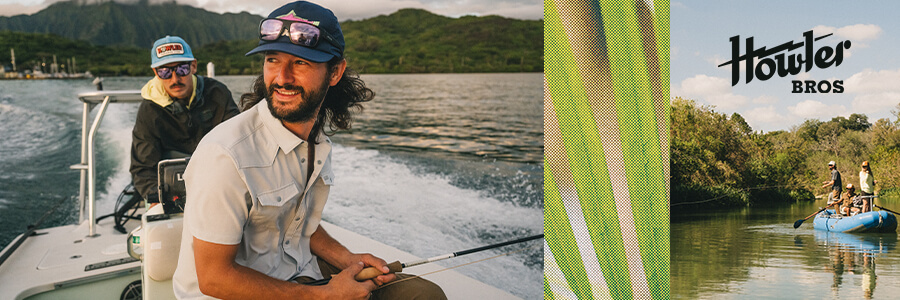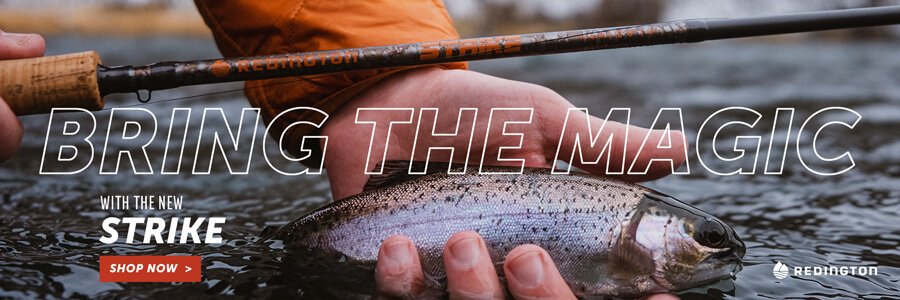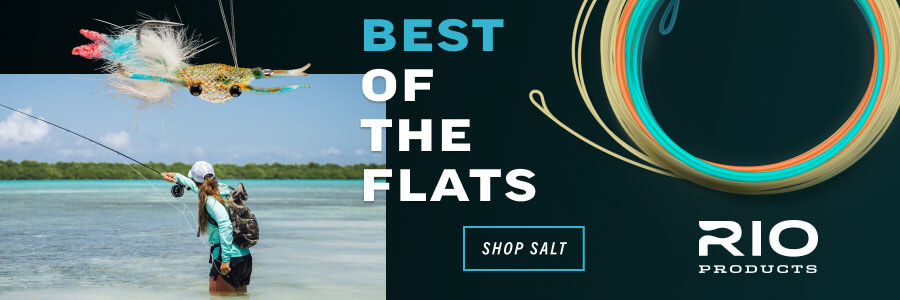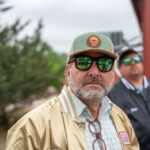The Whaler and the Angler
As a kid, when I was asked, “What do you want to be when you grow up?” I always heard the same cliché answers from my peers: a fireman, a policeman, a politician. I’ll never forget the time I looked my teacher in the eye and gave her an answer I am sure she thought was out of left field. “I wanna work on a whaling ship!” And for my honesty, I was granted a conference between myself, my parents, and a teacher who thought I would one day be on the FBI’s 10 Most Wanted.
The truth is, I always felt a connection to the men who manned those small boats, breaking their backs and breathing in equal parts air and salty foam as they tried to get a harpooner at the prow of their skiff close to a beast that dwarfed anything those bastards had ever seen. At a young age, I had seen the made for TV version of Moby-Dick, and read the book when I was in seventh grade. And it wasn’t Ishmael I felt a bond with; it was the anger-bound, fiery, heathen captain of the Peiquod, Ahab. Perhaps it was that youthful angst and drive I had for my few goals, or the hatred I had for societal norms, but I always admired a man who looked death in the eye, and said, “For hate’s sake, I spit my last breath at thee!”
And I honestly think us saltwater fly fisherman are the memetic descendents of those brave souls who gave the world light, and gave us the first true “fish stories.”
Think about it. The encounters always start the same. Perhaps there is a lull in the air, where full sails wouldn’t even be able to bring a ship any speed. Or maybe there is a chop in the water, with waves so close together that anglers must shout above the din of white caps lapping at the hull of their small boat. Just like those ancient mariners, our boats are tiny, compared to the big ships of our time. Maybe the captain isn’t at the helm of something like the Essex, our skiffs may as well be the same. It is our base of operations from which our adventures go. From the crow’s nest of our poling platforms or coolers, our eyes scour oceans for our hobby’s version of the spouts of breathing whales: tails, flashes, wakes, daisy chains.
On the bow of the vessel is a man with a modern day harpoon; a nine-foot long weapon of bass destruction, with some kind of sharpened metal meant to pierce flesh and scale. Maybe it looks like a shrimp, or a crab, or some abomination against God that somehow gets the job done. Their eyes work with the captain’s, and as the push pole gives the skiff power, a call rings out, akin to the old bell that a look out would ring.
“Whale ahead!”
Instead of launching rowboats off davits with the cries of a bloodlusting crew, the angler and captain share clock directions, distances, descriptions—the three D’s that allow our modern harpooner the shot they need.
Whales are not the intended target. No, what this team is after is something way smaller, but just as beautiful. They want to chase the copper sides of the redfish. They are after the reel screaming runs of the bonefish. Some crave the blast beat drum of tarpon jumping repeatedly. And true masochists go after the ever scrutinous and costly permit. Those are our white whales, our holy grails.
Like the oarmen in those ancient skiffs, the captain poles the boat within range. Not too close as to spook the quarry and make them rush away in splashes of foam and black mud, but not so far that the harpooner has to give himself a hernia casting his weighted line back and forth till the fly and leader land where they need to.
While not as explosive as the red sprays of steel meeting blubber, the connection the angler makes with the fish is just as pulse-pounding. It could be the gaping maw of a tarpon inhaling a fly the size of your pinky, or a redfish almost leaping unbelievably out of the water to eat a popper on top, but either way, it will bring the most guttural growls and yells from an excited angler and captain. The reel screams, as line runs out like the extra rope following a fleeing whale as the game tries to fight for survival. And much like in those old voyages, the fly line can wrap around anything. This could include running lights, trolling motors, arms, and legs. But at least in these new times, the chances of the angler being pulled under and drowning is nil: 10-lb tippet or 20-lb leader usually breaks a lot easier than one-inch thick rope.
Then there is the “ride.” Back in the day, it was called the Nantucket Sleigh Ride. Kayakers love to call it the Cajun Sleigh Ride in this day in age, but it still happens on a skiff. The fish pulls in one way, and the boat will follow, either pulled by the game, or propelled by the captain. The bigger the fish, the more control the captain will need over the vessel, and this could mean using a push pole to get around stumps and trees, or even using the motor to gain ground and line on a tarpon rushing to the deepwater of the ocean.
Finally, the game tires. The whales would run out of oxygen and blood, being unable to get away from the men chasing it with lances and meat hooks. Whalers bring the whale boat side, much as we fly fishermen get our fish to hand. Unlike the old days, we don’t kill these beautiful creatures. A few pictures are taken. A tag may be placed. Maybe a fin gets clipped for science. And with a little revival, the fish swims away. The old whalers would have the hard labor of bringing the carcass to the mothership, hanging it off the sides, and butchering it to harvest the blubber, oil, and teeth if they got a sperm whale.
And then, once these deeds are done, we go off and do it again.
I’m sure you all know the definition of insanity: doing the same thing time and time again and expecting different results. Maybe we, who chase fish, are a different insane: doing the same thing time and time again but expecting the same result. I wonder if those old whalers felt they were insane, spending months aboard an old wooden ship, rowing after beasts that could destroy their bodies in one motion, killing them, and doing the dirty deed of dressing them out.
Maybe it was a certain metal album that made me realize these parallels between our whale killing ancestors and us modern day saltwater anglers. It was “The Call of the Wretched Sea” by Ahab. Listening to it, picturing those souls chasing those plankton eating giants while poling my own skiff, I realize how alike we truly are. I heard the phrase once “All harpooners are bastards.” If this is true, call me a bastard for sure, and tattoo it on my arm, for I will always chase my white whale, the fish of the flats.




